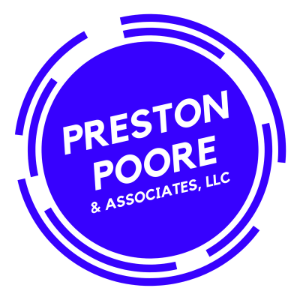The One About The Visa
Printer-Friendly Version
“Get ready to hand out the visas,” the Executive directed.
The company plane and its C-suite passengers were en route to Bogotá, Colombia, for a brief market visit and boondoggle.
To enter Colombia, each passenger needed a visa along with their passport. The Executive delegated the visa application process to an assistant and asked that the permits be available to distribute just before arriving in Bogotá.
The five-hour flight began with a festive atmosphere. Cocktails were flowing, and conversations quickly moved from professional to personal.
Upon the final approach, the Executive directed the Assistant, “get ready to hand out the visas.”
The Assistant proudly produced an envelope from his portfolio and began distributing the visas. But something was wrong.
Guess what? I’ll bet you’re already there.
The Assistant secured Visa gift cards instead of the required travel visas.
Big mistake.
No travel visas meant no entry into Colombia. No entry into Colombia meant no market visit or boondoggle.
The Executive began yelling at the Assistant and shouted, “How could you possibly screw this up?”
“I thought this was a pleasure trip, and you wanted Visa gift cards to cover discretionary expenses,” the Assistant replied. “You said nothing about travel visas. Oh, I’m so sorry…”
That’s right, none of the executives had travel visas to enter Colombia. The plane had to turn around and go back home.
Can you imagine the embarrassment? And the frustration? So much wasted time. After some berating by the Executive, the Assistant ducked his tail and sat down in the back of the plane. The rest of the flight was quiet, oozing with disappointment.
Communication at its finest. But who’s to blame?
The Executive? Yes. She assumed that the directive was clear and understood.
The Assistant? Yes. He assumed what was meant by the directive and acted erroneously.
It made me laugh when I heard the story and thought, “what we have here is a problem to communicate.”
But then I realized, I’ve been on both sides of the coin.
Essential Communications Skills That Leaders Need
Being in a leadership position can test your communication skills. You must be able to connect with others to work together to reach your shared goals.
You have plenty of company if you think you need some help in this area. According to HR Technologist, almost 57% of employees report being given inadequate directions, and 69% of managers say they’re uncomfortable communicating with employees in general.
With practice and effort, you can turn this situation around. Study this quick guide to essential communication skills that leaders need.
Speak Clearly:
- Plan. Before you speak, take time to reflect. Know your purpose, so you can develop strategies and systems that match your values. Be sure to choose appropriate times and channels for what you have to say.
- Simplify your message. Your employees may feel inundated with too much information. Format your emails and memos with bullets and headlines to make them easier to read. Consider using quick graphics to replace a long speech.
- Stay in touch. Provide frequent opportunities for updates and discussions. Schedule staff meetings and one-on-ones. Publish a staff newsletter. Make yourself visible and approachable.
- Tell stories. A compelling anecdote can inspire your team and unite them around a common mission. Focus on concrete examples and emotional appeal. Build a plot around one or two main points.
Listen Closely:
- Pay attention. How observant are you? Knowing your surroundings will help you keep up with informal conversations and nonverbal cues.
- Ask questions. If you want to know what your team is thinking, go straight to the source. Ask open-ended questions that give others the chance to elaborate on their responses. Avoid biased wording that could influence their answers.
- Welcome feedback. Encourage your team to let you know how they think you’re doing. Thank them for their honest and constructive input and use it to enhance your performance. Hold meetings to invite their input before making decisions and collaborate on action plans when possible.
- Let go of judgments. What’s the difference between hearing and listening? As a leader, it’s essential to use your mind as well as your ears. Let others finish what they’re saying without interrupting or thinking about your response. Try to put yourself in their position.
Other Communication Tips for Leaders:
- Be inclusive. Diverse organizations need leaders who can relate to various audiences and create an atmosphere where each team member is valued and respected. That means building genuine relationships and recognizing individual and group contributions.
- Show empathy. Authentic connections depend on caring about the needs of others and being able to understand their thoughts and feelings. Developing a culture of empathy also promotes helpful behaviors and cooperation.
- Follow through. Actions do speak louder than words. To earn trust, it’s essential to lead by example. Deliver on your promises and ensure that your actions are consistent with what you say.
- Resolve conflicts. Effective communication can promote harmony, but some disagreements are to be expected. Stay calm and search for mutually beneficial solutions.
- Master technology. Keep your computer skills up to date so you can communicate online and off. Video calls and other tools are likely to remain popular in a climate of remote and hybrid work.
Successful leaders use communication skills to build trust and motivate others. Expressing yourself with clarity and compassion can help you to develop strong work relationships and guide your team to success.
Don’t be like the Executive and Assistant in the opening story. Be curious. Ask questions. Gain clarity. And above all else, seek first to understand, then to be understood. If you do, you’ll be a leader others will want to follow.
Want to uplevel your leadership and communication skills? Visit, http://www.prestonpoore.com, to learn more.
Cheers!
Preston

Preston Poore
I help leaders lead—without the buzzwords or boring theories. After years in the Fortune 500 world, I’ve seen it all—bad bosses, great teams, and more leadership fails than I can count. Now, I share real stories, practical tips, and the occasional hard-earned lesson to help you lead with confidence. Let’s figure this out together.
Discover Your Life Purpose
Do you wake up each day dreading the idea of spending another day at work? If you’ve failed to discover and build your life around your life purpose, you might feel dissatisfied with your life. Flip the script! Get this special eBook, discover your purpose, and begin living a more fulfilling life today!


